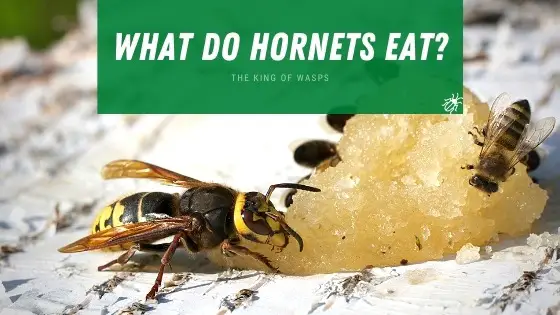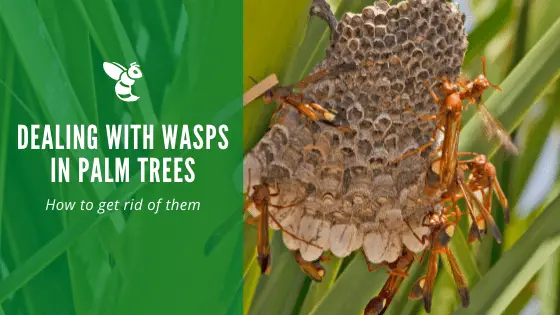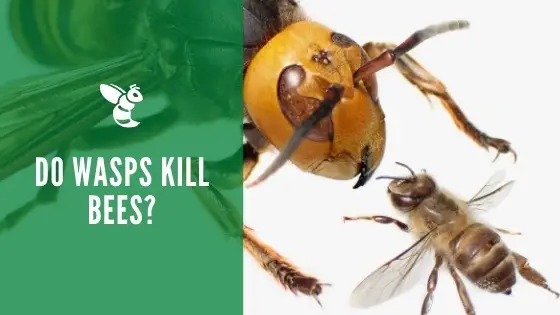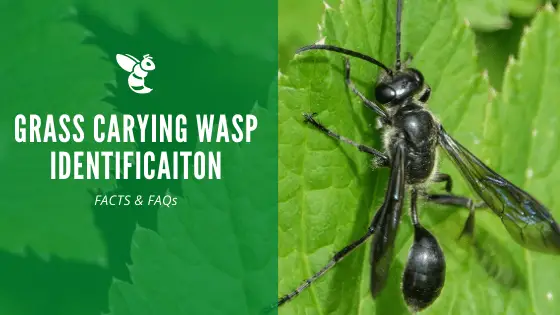What do Hornets Eat?

We’ve all heard about murder hornets and extremely aggressive hornets that will attack. It all seems to be almost fictional, but some hornets pack a painful punch when feeling threatened. Aside from being able to sting, hornets have other behaviors that they exhibit. Under certain circumstances, hornets can be beneficial to have around.
They sting, kill, and consume their prey, which can be some of the more annoying insects in your yard. Hornets often dine on caterpillars, grasshoppers, and crickets.
They also feed off the nectar of flowers and plants so you may see them all over an area with plentiful food sources. Want to learn more about hornets and how they thrive? Read on to find out more.
Do Hornets Eat Bees?
Hornets are a type of wasp breed that is very social. They like to consume large quantities of food that is high in both protein and sugar. Because of this, honey bees are a favorite food source of theirs.
You’ll find that the hornet queens and many colony workers will flock to a honey bee nest if they spot one. The problem with this is that hornets can very quickly destroy an entire colony of honey bees.
This can cut down on the honey production that we see in the U.S. Hornets tend to be a lot bigger than other wasps and bees, so just one hornet can kill approximately forty honey bees in one minute. They repeatedly sting until they feel that they have dominated the area with their presence.
This process takes place just outside the entrance to the honey bee’s hive. As the hornet hovers around the entrance, they will kill any bee that comes their way.
The hornet will bite off the bees’ head to kill them, and they take the body back to their hive for the queen to consume. This ‘Hawking’ behavior resembles the kind of process that you would see a bird of prey perform.
Do Hornets Eat Meat?
While hornets will act quite aggressively to secure their next meal, they aren’t the type of buzzing insect that you’ll often spot around your next picnic with hot dogs and hamburgers. This is generally the kind of diet that you’ll see a bee or wasp consume.
Of course, the meat-eating Asian murder hornet has the potential to kill humans, but we’re not yet dealing with this kind of catastrophe in the U.S. For now, it’s a good idea to keep an eye out for the basic European hornet on your property.
Do Hornets Eat Wood?
Wood is not part of a hornet’s daily diet. However, they will chew on wood from trees and combine it with their saliva to create a cellulose product used to form their nest.
The hornet nest will typically be made above ground, and you can find them high up in the branches of a tree, under the eaves of your home, etc. Once the queen has decided on the location for her nest, she is the one who is responsible for beginning its construction. After the nest is established, she will go on to reproduce and populate the colony.
Your average nest will have about fifty cells, to begin with, and the hornets will expand the nest later on if they feel that they need more space.
What Animals Eat Hornets?
While hornets might seem like the more aggressive type of insect on your property, some other animals and insects will prey upon hornets. Including different species of birds, lizards, frogs, badgers, bats, and spiders.
These predators will seek hornets as their meal, but there are also situations where an animal will attack the nest as a whole to feed off the larvae that are living inside. This often occurs with mice, rats, skunks, badgers, raccoons, and beavers.
There is a falcon called the Caracara that has a diet of about 75 percent wasps. The type of climate and area you live in will determine what kind of predators threaten the wasps in your area.
Do Hornets Eat Wasps?
Hornets are a subset of wasps, so this would be considered consuming their kind. Hornets will kill to defend their nest and colony, but you won’t find a hornet seeking out another hornet or wasp to find their next meal.
There is usually more than enough insects and other food sources to thrive on. Hornets love a snack of honey bees, but they’ll steer clear of each other. They’ll also target other smaller insects nearby to provide a good meal for the growing larvae at home base.
What Are the Benefits of Hornets?
Hornets can pollinate plants, which is something that your garden will be thankful for. Pollination rates would drop dramatically if hornets were no longer around to pass from flower to flower.
They serve their purpose, but it’s a good idea to leave hornets alone when you come across them. They also can cut down on the population of insects like flies, crane flies, caterpillars, spiders, and beetles. If these insects were to get out of control, they could destroy a lot of plants.
If you’re having a problem with hornets on your property, it’s a good idea to call in a professional that can assess the problem before it gets out of hand. Hornets are very aggressive when they want to defend their nest, but they can also be very passive if they’re left alone.
If you’re about to spray their nest with a chemical pesticide you want to physically remove their nest, you should expect to deal with some angry hornets. Make sure you’re wearing protective gear, and plan an escape route that will get you out of the area in a hurry if things go south.




